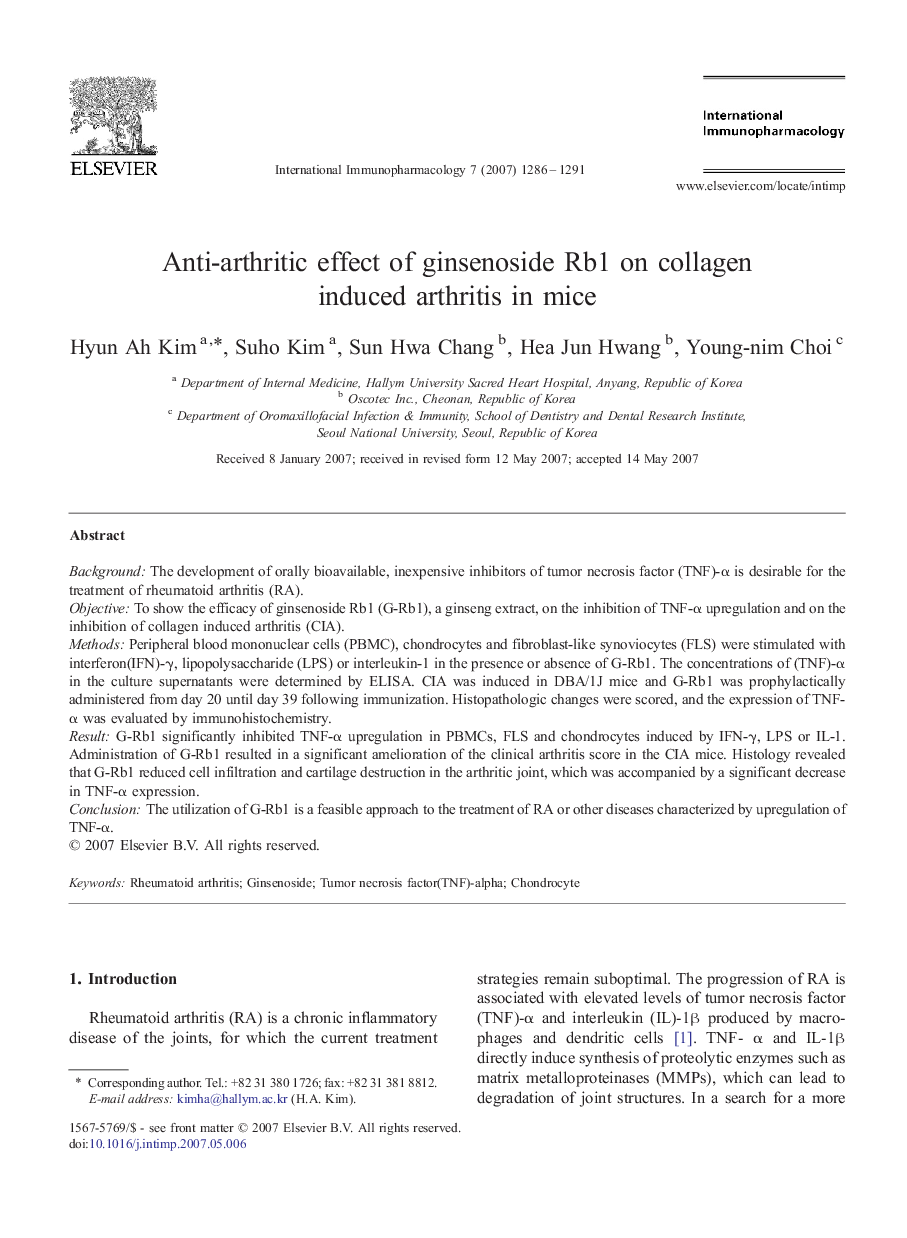| Article ID | Journal | Published Year | Pages | File Type |
|---|---|---|---|---|
| 2542536 | International Immunopharmacology | 2007 | 6 Pages |
BackgroundThe development of orally bioavailable, inexpensive inhibitors of tumor necrosis factor (TNF)-α is desirable for the treatment of rheumatoid arthritis (RA).ObjectiveTo show the efficacy of ginsenoside Rb1 (G-Rb1), a ginseng extract, on the inhibition of TNF-α upregulation and on the inhibition of collagen induced arthritis (CIA).MethodsPeripheral blood mononuclear cells (PBMC), chondrocytes and fibroblast-like synoviocytes (FLS) were stimulated with interferon(IFN)-γ, lipopolysaccharide (LPS) or interleukin-1 in the presence or absence of G-Rb1. The concentrations of (TNF)-α in the culture supernatants were determined by ELISA. CIA was induced in DBA/1J mice and G-Rb1 was prophylactically administered from day 20 until day 39 following immunization. Histopathologic changes were scored, and the expression of TNF-α was evaluated by immunohistochemistry.ResultG-Rb1 significantly inhibited TNF-α upregulation in PBMCs, FLS and chondrocytes induced by IFN-γ, LPS or IL-1. Administration of G-Rb1 resulted in a significant amelioration of the clinical arthritis score in the CIA mice. Histology revealed that G-Rb1 reduced cell infiltration and cartilage destruction in the arthritic joint, which was accompanied by a significant decrease in TNF-α expression.ConclusionThe utilization of G-Rb1 is a feasible approach to the treatment of RA or other diseases characterized by upregulation of TNF-α.
